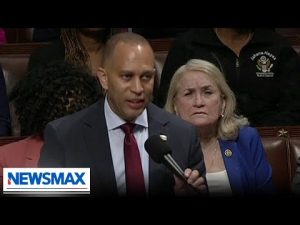For more than two hundred years, the red, white, and blue has symbolized freedom, bravery, and the spirit of America. However, in recent times, this beloved banner has come under scrutiny. With athletes kneeling during the national anthem or celebrities disparaging the nation that gave them so much, American pride appears to be taking a hit. But this summer may be ushering in a fresh wave of patriotism. We are starting to see athletes like Tamyra Mensah-Stock embracing the American flag once again, rekindling the flames of national pride. Even pop icons like Beyoncé are waving the stars and stripes on her Cowboy Carter tour, signaling a potential shift.
The political arena is witnessing a similar trend. It seems that Democrats are attempting to weave patriotism into their narrative, as evidenced by their efforts during last year’s Democratic National Convention. In a move that many might find surprising, they are reclaiming symbols of American pride, as noted in a recent headline discussing their claim over the flag. This tug-of-war over what it means to love America is becoming increasingly visible. Amidst this cultural back-and-forth, Texas Congressman Wesley Hunt is stepping to the forefront by reintroducing a resolution to declare July as American Pride Month. He argues that if June can be earmarked for woke ideology, then July, the very month of America’s founding, should celebrate the nation itself.
This proposed month of American Pride is timely, considering recent Gallup polling that shows a noticeable dip in national pride. The data reflects a stark partisan divide. While only 36% of Democrats reported being very proud to be Americans, an impressive 92% of Republicans expressed their pride, a slight increase from previous years. This overwhelming difference raises questions about the narrative surrounding patriotism in contemporary American culture.
The discussion surrounding this surge in patriotism is especially relevant as the country approaches its birthday. Many conservative voices lament the disrespect shown towards the American flag and the principles it represents. They argue that those who claim America is terrible often forget the privileges and freedoms enjoyed here that are simply unimaginable in many parts of the world. A loud and proud sentiment is echoed amongst these conversations: if you’re disillusioned with America, perhaps you should consider the exit door.
As the dialogue around patriotism continues to evolve, many wonder if this newfound embrace among athletes and even politicians is genuine or merely a strategic move to attract voters. The truth of the matter may lie in both the intentions and the trends shaping the conversation around what it means to be proud of one’s country. Upholding American pride may very well reside in the foundations laid in homes across the nation, with parents instilling values of respect and admiration for the country in their children. No matter the noise that persists, the essence of being proud to be American remains vital for the future generations destined to uphold that legacy.







